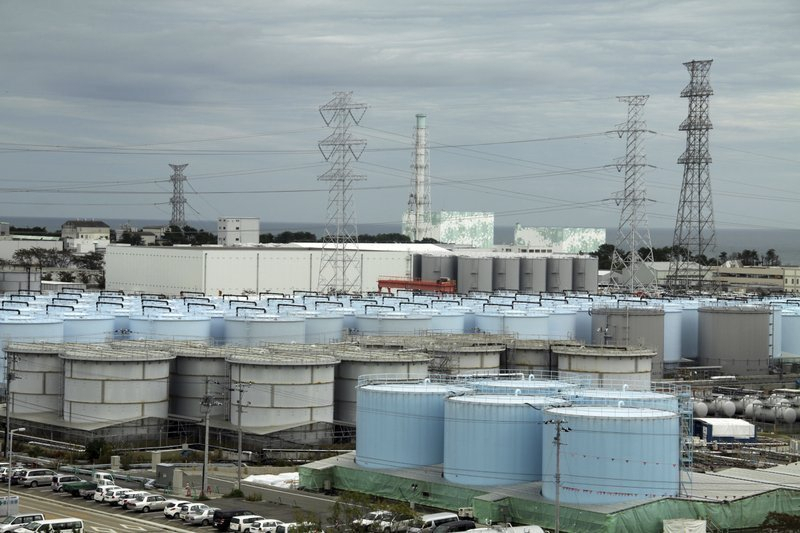 |
Storage tanks for treated contaminated water are seen at Fukushima Daiichi nuclear power plant in Okuma town, Fukushima prefecture. (AP-Yonhap) |
TOKYO -- A team of South Korean experts is set to begin a two-day inspection of the planned release of radioactive water from the crippled Fukushima nuclear power plant Tuesday, amid lingering concerns about the safety of the water.
The 21-member team, headed by Nuclear Safety and Security Commission Chairperson Yoo Guk-hee, will visit the plant from early Tuesday to examine the plant's custom purification system, known as ALPS, and assess whether the treated water is safe enough to be released into the sea.
The team will also focus on inspecting facilities related to the K4 tanks, which are designed to store and conduct measurements of radioactive substance.
On Monday, the experts held a four-hour meeting with Japanese officials from the Tokyo Electric Power Co., the operator of the wrecked power plant, as well as the industry ministry and the Nuclear Regulation Authority, the country's top nuclear regulator.
The delegation is scheduled to have "in-depth technical discussions" based on their findings Thursday before returning home the following day.
The inspection -- the first independent one by South Korean experts -- is a follow-up to the summit between South Korean President Yoon Suk Yeol and Japanese Prime Minister Fumio Kishida in Seoul earlier this month amid a thaw in the two countries' relations badly frayed over historical disputes.
In March 2011, a massive earthquake and subsequent tsunami damaged the Fukushima plant's cooling systems, resulting in the release of a large amount of radiation.
The plant currently stores over 1.3 million tons of water treated by ALPS. The water release is set to begin this summer and will take decades to complete, in what Japanese officials view as an unavoidable step in the decommissioning process.
Japanese officials have claimed the "treated" and further diluted water will be gradually released into the sea, and cause virtually no harm to human health and the environment. Seoul has continued to express concerns over its safety and said it will not consider lifting its ban on seafood imports from eight Japanese prefectures near Fukushima in place since 2013. (Yonhap)







![[Weekender] Korea's traditional sauce culture gains global recognition](http://res.heraldm.com/phpwas/restmb_idxmake.php?idx=644&simg=/content/image/2024/11/21/20241121050153_0.jpg)